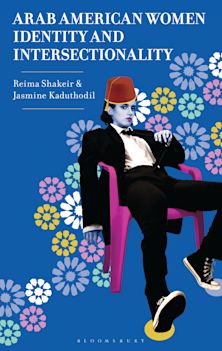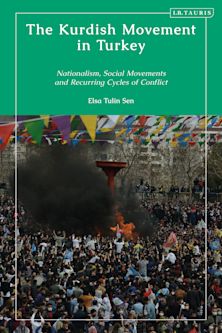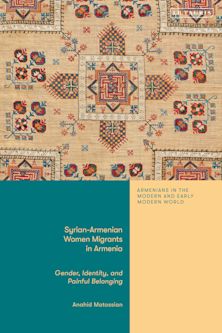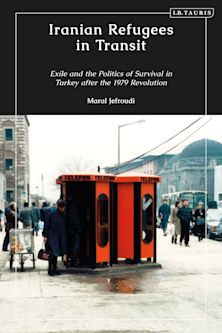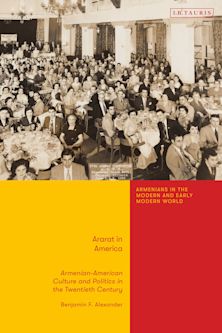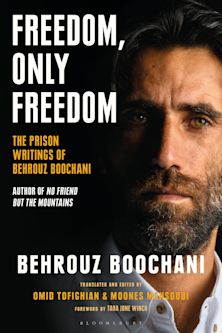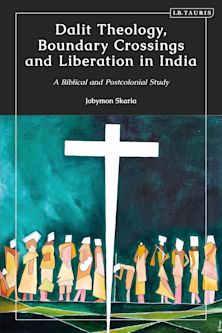- Home
- ACADEMIC
- Middle East
- Migration and Minority Studies
- The Kurds of Central Anatolia
The Kurds of Central Anatolia
The History, Identity and Future of a Forgotten People
The Kurds of Central Anatolia
The History, Identity and Future of a Forgotten People
You must sign in to add this item to your wishlist. Please sign in or create an account
Description
From the 16th century up to the last decades of the Ottoman Empire, dozens of Kurdish tribes migrated west and settled in the Central Anatolian plains.
Geographically isolated, these Kurds sustained a largely peaceful relationship with their Turkish neighbours and maintained their tribal traditions and distinct ethnolinguistic identity. But more recently they have been exposed to forces of modernization and increasingly confrontational Turkish-Kurdish relations. This book is the first study in the English language on the Kurds of Central Anatolia. Based on extensive fieldwork, the majority of the chapters are written by scholars from within the Central Anatolian community and include perspectives from across history, anthropology, sociology and political science. The book analyses how these Kurds came to be in the plains of Central Anatolia, how they maintained their distinct identity and their evolving relationship with Turkey. It also examines the diaspora communities following their large-scale migration toward major urban centres in Turkey and Western countries. At a time when the Kurds of Central Anatolia are undergoing wide-scale transformations and contact with Kurds from the east, this book is an increasingly urgent examination into their past, their Kurdish identity and their future.
Table of Contents
Introduction, Mehmet Gurses, University of Central Florida, US, and Haci Cevik, Humboldt University, Germany
Section I: Kurds of Central Anatolia: An Overview
Chapter 1: The Historical Odyssey of Kurds of Central Anatolia, Yalcin Cakmak, Munzur University, Turkey
Chapter 2: Researching Kurds of Central Anatolia: Conceptual and Methodological Challenges in Studying Kurds of Central Anatolia, Yucel Demirer, Independent Scholar, Turkey
Chapter 3: Literary Works on Kurds of Central Anatolia: Resistance through Publishing, Adem Ozgur, Independent Journalist, Netherlands
Section II: Being Kurdish in a Sea of Turkishness
Chapter 4: Desert Kurds of Kirsehir: Clinging to Kurdishness in the Heart of Anatolia, Arzu Yilmaz, University of Kurdistan, Hewler
Chapter 5: Kurds of Haymana-Ankara: A Kurdish Tribe in Turkish Capital, Reyhan Ozsahin, University of Tubingen, Germany and Haci Cevik, Humboldt University, Germany
Chapter 6: Migration, Identity, and Cultural Memory: Social Construction of Kurdishness in Bala-Ankara, Sena Kaplan, University of Virginia, US
Chapter 7: Kurds of Yunak: Walking a Tightrope in Konya, Beyza Han-Tuncez, University of California, Berkeley, US
Chapter 8: A Kurdish Mahalle in Kastamonu: Neighborhood as Identity, Reyhan Ozsahin, University of Tubingen, Germany
Section III: The Evolving Kurdishness in Central Anatolia
Chapter 9: Identity, Migration, and Architecture among the Kurds of Central Anatolia, Gülüstan Polat-Yilmaz, Technical University of Graz, Austria
Chapter 10: Women and Politics Among Kurds of Central Anatolia, Busra Çelik Kosan, Independent Scholar, Turkey
Chapter 11: The Shifting Ground and Inter-Ethnic Relations in Konya, Haci Cevik, Humboldt University, Germany, and Mehmet Gurses, University of Central Florida, US
Product details
| Published | 11 Dec 2025 |
|---|---|
| Format | Ebook (PDF) |
| Edition | 1st |
| Extent | 272 |
| ISBN | 9780755655793 |
| Imprint | I.B. Tauris |
| Series | Kurdish Studies |
| Publisher | Bloomsbury Publishing |
About the contributors
Reviews
-
I wholeheartedly recommend this book for anyone seeking a thought-provoking exploration of Kurdish identity in the context of changing political landscapes. It lays out diverse ways of being a Central Anatolian Kurd, its connection and disconnection to Eastern Kurdishness provides a comprehensive exploration of Kurdish marginalized identity amid evolving political dynamics. A topic almost non-existent in Western academic studies, makes this book a standout contribution. The dedication to encouraging fresh thinking in methodology adds another valuable dimension for researchers.
Gulsum Gurbuz-Kuchuksari, American University, US
-
This pioneering volume offers a methodologically sophisticated and analytically layered examination of the Kurds of Central Anatolia. It conveys the spatial-historical complexity of the Kurdish experience across socio-economic, political, ecological, cultural, and ideological dimensions through an interdisciplinary perspective, and opens new avenues for rethinking Kurdish identity, belonging, and displacement.
Nilay Özok-Gündogan, Associate Professor, Florida State University, USA
-
This meticulously crafted edited volume offers a ground-breaking analysis of the multifaceted nature of Kurdishness in Central Anatolia. Drawing on a rich array of archival sources, personal narratives, and ethnographic fieldwork, the book reveals how Kurdish communities in this region have negotiated their identity in ways that markedly diverge from their more politicized counterparts in South-eastern Turkey. It is an essential resource for scholars of Kurdish and Turkish studies, as well as for those engaged in broader fields of ethnic and identity politics.
Ekrem Karakoc, Professor, Binghamton University, USA
-
This ground-breaking study, authored by a new generation of Kurdish scholars, offers a significant contribution to the field. Drawing on both archival sources and existing literature, this volume marks a significant milestone and serves as an essential reference for scholars, students, and anyone interested in the history of the overlooked Kurdish communities in Central Anatolia.
Dr Fikret Yildiz, Author and Co-founder of the Kurdish cultural journal Bîrnebûn
-
This powerful book tells the story of Central Anatolian Kurds - communities too often excluded from mainstream narratives. It gives voice to their unique experiences and struggles. Published in English for the first time, this landmark work opens new conversations and offers essential insights for anyone interested in Kurdish history, identity, and the complexities of the modern Middle East.
Sores Resî, writer, Sweden













